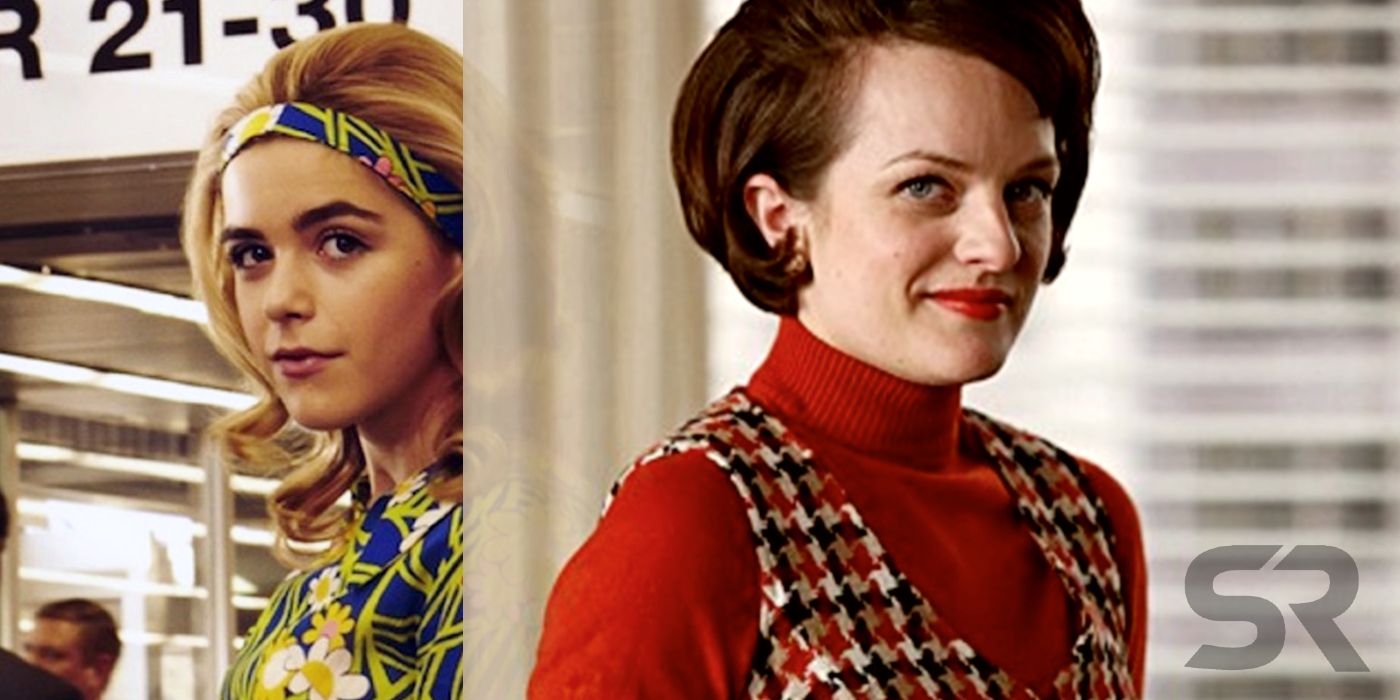At the height of Mad Men’s popularity, two spin-offs were considered — but, despite promising concepts and network's interest, they didn’t happen. A decidedly singular experience, Mad Men ran for seven seasons on AMC, producing 92 episodes, winning 16 Emmys and 5 Golden Globes, and going down in history as one of the greatest programs to ever grace TV screens. Given the show's sprawling narrative and ensemble cast, spin-offs seemed like an inevitability — at least, that’s what AMC thought after Mad Men season 4. The show's creator, on the other hand, had humbler goals: simply reaching the end of the series.
In an oral history with THR, Mad Men creator Matthew Weiner discussed the show's mid-series struggles. As part of their new deal with Weiner, AMC wanted a spin-off show and suggested two different ideas: one about Peggy Olson (Elisabeth Moss) and another about Sally Draper (Kiernan Shipka). This is unsurprising, given AMC’s history of producing spin-off shows, as seen with the ever-expanding Walking Dead franchise, as well as the Breaking Bad prequel series Better Call Saul.
The Peggy Olsen idea was said to have a similar tone to Better Call Saul, with Peggy moving out to L.A. and encountering new obstacles. It’s not difficult to imagine Peggy getting involved in the TV or film industry somehow, probably writing screenplays and fighting to survive in the emerging ‘New Hollywood’ of the 1970s. Or better yet, Peggy could follow in the footsteps of Harry Crane, heading up a TV advertising division. AMC’s next idea, involving Sally Draper, requires less speculation, with various iterations being hypothesized over the years.
The first iteration was said to be set in the then-present day (early 2010s) and would follow Sally Draper, the daughter of Mad Men lead Don Draper (Jon Hamm), as a woman in her late 50s. Hamm, however, offered EW a more vivid suggestion, one that could return Kiernan Shipka to her familiar role:
“We would want to watch Sally grow up. Move through the 70s and turn into a rock star and turn into Joan Jett or something. Ride a motorcycle and kill a guy. Make a bunch of money and then become Oliver Stone in the 80s. Date Kurt Cobain in the 90s. She’s just a touchstone for every generation. Yeah, I’d watch that show. Sally Through the Decades.”
With the recent cancellation of Netflix’s Chilling Adventures of Sabrina — a Shipka-led show — perhaps this spin-off is still a viable option. For Matthew Weiner, however, the notion of a spin-off show didn’t have any appeal, and a new deal was reached with AMC after his initial contract expired. Their new, collective goal? To bring Mad Men to a thoughtful and satisfying conclusion — without the added distractions that any spin-off show would inevitably bring. They succeeded in doing so, with Mad Men's season 7 finale receiving critical acclaim for bringing Don’s story to a symbolic close: finding inner peace, while also stumbling upon the idea for a now-iconic marketing campaign.
Weiner went on to create The Romanoffs for Amazon Prime, but it failed to gain the same kind of traction with audiences that Mad Men had, and — in 2019 — Amazon announced that they had no plans for a second series. Hypothetically, this has freed Matthew Weiner’s calendar up a bit, giving him enough time to at least think about a potential Sally Draper spin-off. Then again, the show’s legacy is very firmly intact, and any attempt to expand its narrative would be heavily scrutinized — and rightly so. Mad Men is, and probably ought to remain, an untouched pillar in the television landscape. It came, it saw, it conquered — and then it left, closing out its run with the same grace and sophistication that had earmarked the series from the beginning.


